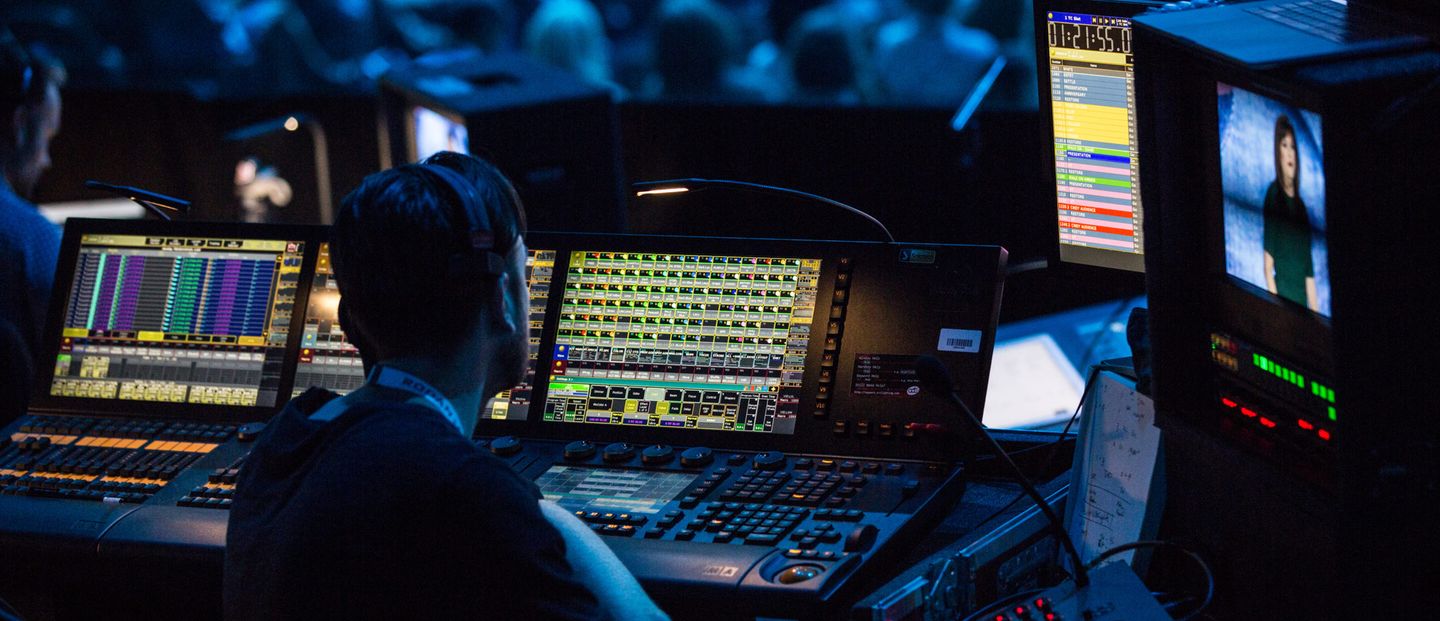Understanding the Basics of Event Production
The ins and outs of occasion manufacturing need a comprehensive understanding of several foundational components, consisting of the facility of clear purposes, meticulous budgeting, and strategic location option. Each part plays a crucial function in the seamless execution of an event, affecting whatever from audience involvement to logistical efficiency. The technological facets of manufacturing and the dynamics of group control are equally important to achieving a natural outcome. As we explore these vital variables, one should consider how they relate and influence the general success of an occasion. What techniques can be employed to integrate these elements properly?
Specifying Event Objectives
Specifying occasion goals is an important action in the event production procedure, functioning as the foundation upon which all planning and execution are developed. Clear objectives supply direction, ensuring that all stakeholders understand the event's function and wanted results. These purposes should be details, measurable, attainable, relevant, and time-bound (SMART), which enables reliable evaluation of success post-event.
Recognizing the target audience is vital in shaping the goals. Recognizing their demographics, rate of interests, and assumptions enables occasion organizers to customize web content and experiences that reverberate with guests. Additionally, straightening the objectives with more comprehensive business objectives fosters assistance from leadership and stakeholders, guaranteeing that the event adds to the overall goal.
It is essential to interact these objectives clearly to all group members included in the planning procedure. By establishing distinct purposes, event producers can create an organized framework that overviews decision-making and source allowance, ultimately leading to an effective event.
Budgeting for Success
Reliable budgeting is essential for the effective production of any type of event, as it supplies a monetary framework that sustains all planning tasks. A well-structured budget permits occasion organizers to designate resources efficiently, guaranteeing that every aspect of the event is properly moneyed while minimizing the threat of overspending.
To develop an efficient budget, begin by determining all potential expenses, such as location expenses, food catering, enjoyment, tools rentals, and advertising and marketing. It is vital to categorize these expenditures right into repaired and variable costs, which assists in understanding which elements are non-negotiable and which can be adjusted based upon financial restraints.
Additionally, income resources must be identified early in the budgeting procedure - Event Production Company. This includes ticket sales, sponsorships, and merchandise sales. By estimating prospective revenue, organizers can align their expenditures appropriately, ensuring that the occasion remains economically feasible
Regular surveillance of the budget throughout the preparation procedure is essential. This allows for changes to be made as necessary, keeping financial technique. Ultimately, an efficient budget plan not only safeguards against unanticipated costs but likewise boosts the overall high quality and experience of the occasion, ensuring its success.
Venue Choice Methods

Selecting the appropriate location is a critical component of effective event production, as it sets the stage for the overall experience. The initial step in place option is to specify the event's goals and audience, which will certainly guide the selection of location and capacity. Considerations such as availability, setting, and readily available features need to straighten with the occasion's motif and purpose.
Following, evaluate the venue's capacity to accommodate your anticipated variety of attendees while making sure comfort and engagement. It is vital to visit possible locations in person to assess their layout, facilities, and total charm (Event Production Company). Furthermore, assess logistical facets consisting of car park schedule, public transportation accessibility, and any type of restrictions that might impact the event
Spending plan restrictions are also critical; make sure that the venue fits within economic specifications while supplying needed solutions. Agreement settlements ought to be approached with persistance, seeking openness relating to added prices, cancellation policies, and obligation coverage.
Last but not least, think about the venue's online reputation and previous efficiency for comparable events. Involving with previous customers can offer beneficial insights right into the venue's reliability and solution top quality, eventually helping in making a notified decision.
Technical Production Components
Technical manufacturing components work as the foundation of any kind of occasion, ensuring that all sound, aesthetic, and lights components work harmoniously to produce an immersive experience. These aspects incorporate a selection of approaches and innovations intended at supplying content efficiently and engagingly.
Audio systems are vital, including microphones, audio speakers, and blending tools to ensure clear sound shipment. High-quality sound is essential for keeping target market involvement, specifically in bigger locations. Visual components include estimate systems, LED displays, and video feeds, which boost the visual story company website of the occasion and support the general theme.
Lighting plays a pivotal role in establishing the mood Resources and assisting target market emphasis. A well-designed lighting plan includes different methods, such as spotlights, ambient lighting, and shade cleans, to develop vibrant atmospheres appropriate for various sections of the event.

Team Control and Roles
Effective occasion manufacturing pivots on smooth group coordination and clearly defined roles among all participants. For an event to run smoothly, each team participant have to understand their responsibilities and how they contribute to the overall vision.
Effective communication is important in this collaborative environment. Normal conferences and updates make certain all staff member are lined up and can adapt to any kind of changes or difficulties that occur. Utilizing job monitoring tools can facilitate this interaction, enabling real-time updates and job monitoring.
Additionally, promoting a culture of synergy is vital. Urging more helpful hints collaboration among diverse ability not only enhances analytic yet additionally advertises a positive functioning atmosphere. When staff member feel valued and encouraged, their efficiency increases, inevitably resulting in a much more successful occasion.
Verdict

The intricacies of occasion manufacturing require an extensive understanding of a number of foundational elements, consisting of the establishment of clear objectives, precise budgeting, and strategic venue choice.Defining occasion purposes is a vital action in the event manufacturing process, serving as the structure upon which all preparation and implementation are constructed. By developing distinct objectives, event producers can develop a structured framework that guides decision-making and resource allotment, eventually leading to a successful event.
In conclusion, a thorough understanding of event manufacturing incorporates specifying clear goals, developing a durable spending plan, choosing a proper venue, managing technological production elements, and ensuring reliable team control. By diligently attending to these basics, event planners can boost the guest experience, optimize sources, and accomplish preferred outcomes, therefore adding to the event's total performance and effect within the intended target market.